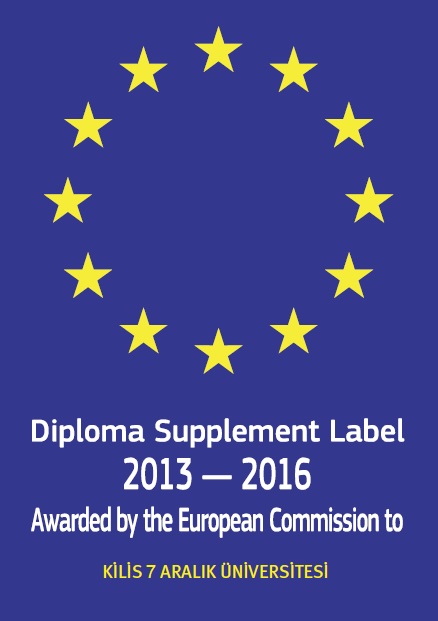The Diploma Supplement is issued in a widely spoken European language (English). All Students of the applicant institution receive a Diploma Supplement automatically and free of charge upon graduation.(‘Automatically’ meaning that the student is not required to make a request fort he Diploma Supplement).
What is Diploma Supplement?
The Diploma Supplement (DS) is a document attached to a higher education diploma aiming at improving international 'transparency' and at facilitating the academic and professional recognition of qualifications (diplomas, degrees, certificates etc.). It is designed to provide a description of the nature, level, context, content and status of the studies that were successfully completed by the individual named on the original qualification to which this supplement is appended. It should be free from any value-judgements, equivalence statements or suggestions about recognition. It is a flexible non-prescriptive tool which is designed to save time, money and workload. It is capable of adaptation to local needs.
The DS is produced by national institutions according to a template that has been developed by a Joint European Commission - Council of Europe - UNESCO working party that tested and refined it.
The DS is composed of eight sections (information identifying the holder of the qualification, information identifying the qualification, information on the level of the qualification, information on the contents and results gained, information on the function of the qualification, additional information, certification of the Supplement, information on the national higher education system).
Information in all eight sections should be provided. Where information is not provided, an explanation should give the reason why.
A description of the national higher education system within which the individual named on the original qualification graduated has to be attached to the DS. This description is provided by the National Academic Recognition Information Centres (NARICs) and is available on the website: www.enic-naric.net
What it is not?
- It is not a Curriculum Vitae.
- It is not a substitute for the original qualification or a transcript.
- It is not an automatic system that guarantees recognition.
What does the Diploma Supplement offer to students?
- A diploma that is more readable and easily comparable abroad.
- A precise description of their academic career and the competencies acquired during the study period.
- Objective description of their achievements and competencies
- An easier access to opportunities of work or further studies abroad
- It fosters their employability
What does the Diploma Supplement offer to higher education institutions?
- It facilitates academic and professional recognition, thus increasing the transparency of qualifications.
- It protects national/institutional autonomy while offering a common frame which is accepted all over Europe.
- It promotes informed judgements about qualifications that can be understood in another educational context.
- It raises the visibility of the institution abroad.
- It promotes the employability of their graduates at national and international level.
- It helps saving time since it provides the answers to a lot of recurrent questions put to administrative services in institutions about the content and portability of diplomas.
Why is the Diploma Supplement needed?
New qualifications proliferate worldwide and countries are constantly changing their qualification systems and educational structures under the impact of rapid economic, political and technological change. An increasing number of mobile citizens are seeking the fair recognition of their qualifications. The non-recognition and poor-evaluation of qualifications is now a global problem. Since original credentials alone do not provide sufficient information, it is very difficult to gauge the level and function of a qualification without detailed appropriate explanation.
The Diploma Supplement is a response to these challenges since:
- It promotes transparency in higher education.
- It accommodates rapid changes in qualifications.
- It aids mobility, access and lifelong learning.
- It promotes fair and informed judgements about qualifications.
Detailed information about the Diploma Supplement can be found on the web-site:
http://ec.europa.eu/education/policies/rec_qual/recognition/diploma_en.html
Examples of Diploma Supplement at Kilis 7 Aralık Unıversity

